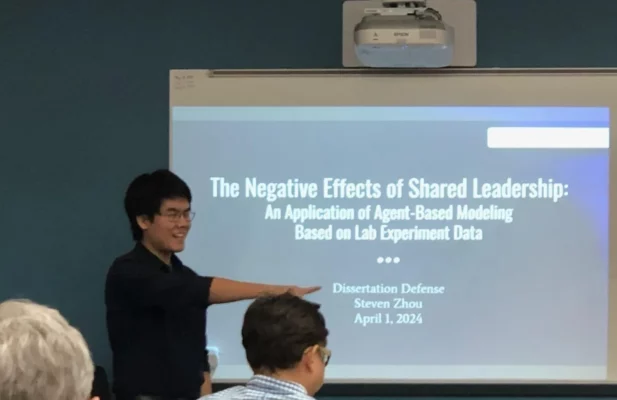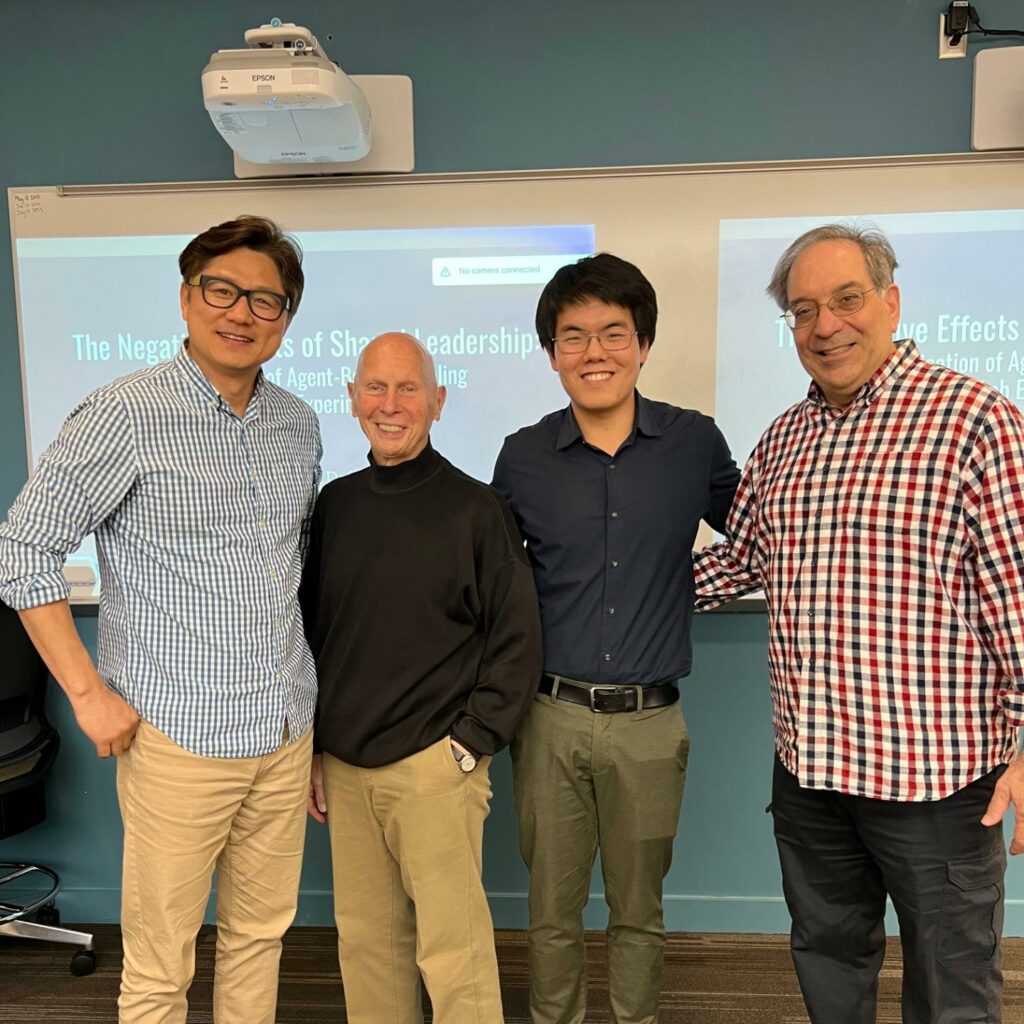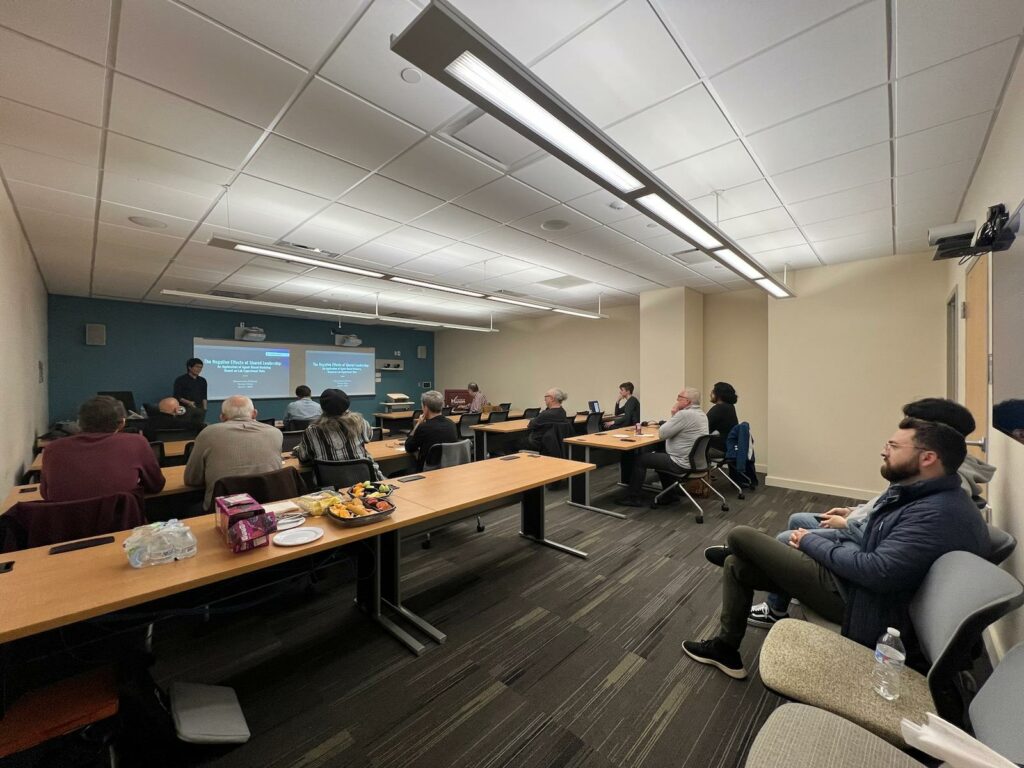
It’s been a long five years, but I’ve passed my defense and have finished the PhD! It’s hard to imagine that in 2019, I entered the program and had that first conversation with my advisor, (naively) stating that I wanted to investigate shared leadership. And now, here it is showing up in my final dissertation!
People are always asking what my dissertation is about. Here’s the abstract, for those who are interested:
Recently, there has been a surge of interest in the use of computational modeling (e.g., agent-based modeling, system dynamics, dynamic social networks) to study phenomena in the social sciences. Computational models have the advantage of being highly flexible, able to simulate complex interactions, succinctly capture nuanced theories into a set of clear governing rules, and reveal emergent macro-level phenomena from micro-level processes. Despite having decades of history in other fields of study (e.g., economics, epidemiology), these methods are novel and only just beginning to see applications in psychological research. In the present study, we demonstrate a novel application of agent-based modeling (ABM) using a hybrid approach, whereby data from a lab experiment are used to inform parameter values inputted into the ABM algorithms. These methods are demonstrated on the topic of shared leadership, a growing area of interest in leadership scholarship, with a focus on the potential “negative effects” of shared leadership that have been largely overlooked in decades of research. Reproducible free online code is provided for future scholars to modify and conduct their own simulation experiments. The results show how the ABM methods provide evidence in support of our proposed conceptual model of the “dark side” of shared leadership and offer an example of how ABM methods can be integrated into traditional psychological research.
Translated abstract: Shared leadership has been assumed for decades to have positive outcomes (e.g., performance, creativity), but I proposed a theoretical model for how different forms of shared leadership could lead to different negative effects such as relationship conflict, role overlap, and transition failure. I demonstrated this through a lab experiment and an agent-based model, which is a new method that is burgeoning in the organizational sciences that involves coding micro-level rules and parameters and running simulations to observe macro-level emergent phenomena.
I have a lot of people to thank dearly for their support during this PhD program, but I’ll start with a few here (more to come later):



My advisor, Dr. Stephen Zaccaro, pushed my understanding of leadership and teams theory, backed me in every step of the program, introduced me to a broad and influential network of I-O scholars, and put up with my many idiosyncrasies. My secondary advisor, Dr. Philseok Lee, introduced me to statistical methods I had never heard of before, offered me all sorts of tutorials and scripts, and continues to partner with me on one publication after another. My final committee member, Dr. Richard Klimoski, offered a unique business strategy perspective and continued to push me in explaining the “bottom line” benefits of my research to future business stakeholders.
Moreover, I was honored to have many guests (some pictured above) attend the defense! It isn’t too common for others to attend these defenses, given how in-depth (and probably overly complicated) they can get, but I was grateful to other faculty, staff, and friends come to show their support (and interest!) in my work. I couldn’t have gotten through the PhD program without them, and I hope this small act demonstrated that fact: no PhD student should ever have to go through this alone.
What’s next? I’ve got some exciting personal news about the Fall, which I’ll share in an upcoming post soon. In the meantime, I’m staying put in Fairfax Virginia, continuing with my research, and teaching a couple of graduate-level courses as an adjunct. Stay tuned for more!
PS: If you’re interested in multidimensional forced choice (MFC) measures, my lab just published a pair of two studies investigating gender differences and order effects in MFC personality tests. Check out my research page for brief descriptions of the studies and to download full papers!
Comments (0)